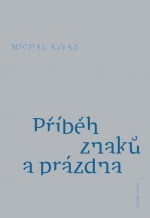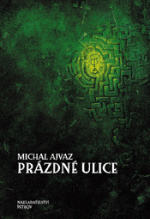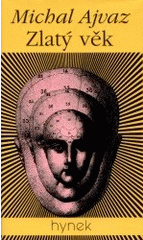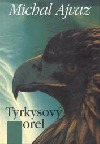Michal Ajvaz (1949) is a philosopher, poet, novelist and essayist. After studying at Charles University’s Faculty of Arts he had various manual jobs. In the 1990s he was an editor at the journal Literární noviny, and since 2003 he has worked at the Centre for Theoretical Studies – a joint research institute of Charles University and the Czech Academy of Sciences. Since 1989 his publications have included a book of poetry, Vražda v hotelu Intercontinental (Murder in the Intercontinental Hotel, 1989), books of short stories (e.g. Návrat starého varana [(The Return of the Old Komodo Dragon, 1991)], several novels (e.g. Druhé město, [The Other City, 1993], Zlatý věk [The Golden Age, 2001], Cesta na jih [Voyage to the South, 2008]), philosophical studies (e.g. Kosmos jako sebeutváření [The Cosmos as Self-Creation, 2017]) and books of essays (e.g. Příběh znaků a prázdna [The Story of Signs and Emptiness, 2006]). He is the recipient of the Jaroslav Seifert Award, a Magnesia Litera award and the Prix Utopiales Européen. His books have been translated into twenty-four languages, including English and German.
Michal Ajvaz
| Title | Publisher | Year | Selected published translations | Awards |
|---|---|---|---|---|
| Cities (Města) | Druhé město | 2019 | ||
| The Cosmos as Self-Creation (Kosmos jako sebeutváření) | Pavel Mervart | 2017 | ||
| Murder of an Old Komodo Dragon (Vražda starého varana) | Druhé město | 2012 | ||
| Golden Age (Zlatý věk) | Druhé město | 2011 | EN | FR | |
| The Luxembourg Gardens (Lucemburská zahrada) | Druhé město | 2011 | RU |
2012 Magnesia Litera – Book of the Year |
| The Home of Sinbad (Sindibádův dům) | Pavel Mervart | 2010 | ||
| Voyage to the South (Cesta na jih) | Druhé město | 2008 | PL | |
| Warping (Snování) | Pavel Mervart | 2008 | ||
| Sign, Self-confidence and Time (Znak, sebevědomí a čas) | Filosofia | 2007 | ||
| The Story of Signs and Emptiness (Příběh znaků a prázdna) | Druhé město | 2006 | ||
| The Other City (Druhé město) | Petrov | 2005 | LT | IT | FR | NO | SV | EN | PL | RU | |
| Empty Streets (Prázdné ulice) | Petrov | 2004 | EN |
2005 Jaroslav Seifert Prize |
| The Luminous Primaeval Forest (Světelný prales) | OIKOYMENH | 2003 | ||
| Grammar Dreams, Letters Glow (Sny gramatik, záře písmen) | Hynek | 2003 | ||
| Golden Age (Zlatý věk) | Hynek | 2000 | | EN | FR | |
| Turquoise Eagle (Tyrkysový orel) | Hynek | 1997 | ||
| The Secret of the Book (Tajemství knihy) | Petrov | 1997 | ||
| The Quiet Labyrinths (Tiché labyrinty) | Argestea | 1996 | ||
| Sign and Being (Znak a bytí. Úvahy ned Derridovou gramatologií) | Filosofia | 1994 | ||
| The Other City (Druhé město) | Mladá fronta | 1993 | NL | LT | IT | FR | NO | SV | EN | PL | RU | |
| Return of the Old Komodo Dragon (Návrat starého varana) | Mladá fronta | 1991 | DE | NL | PL | |
| Murder in the Hotel Intercontinental (Vražda v hotelu Intercontinental) | Mladá fronta | 1989 | PL |

Warping
Snování

Sign, Self-confidence and Time
Znak, sebevědomí a čas

The Story of Signs and Emptiness
Příběh znaků a prázdna

The Luminous Primaeval Forest
Světelný prales

Grammar Dreams, Letters Glow
Sny gramatik, záře písmen

The Secret of the Book
Tajemství knihy

The Quiet Labyrinths
Tiché labyrinty

Sign and Being
Znak a bytí. Úvahy ned Derridovou gramatologií

Murder in the Hotel Intercontinental
Vražda v hotelu Intercontinental
| Award | Year | Country |
|---|---|---|
| Utopiales Européen Prize | 2015 | France |
| Magnesia Litera – Book of the Year | 2012 | Česká republika |
| Jaroslav Seifert Prize | 2005 | Česká republika |
Praise
A lovely catalog of – and meditation on – other-worldly ideas and notions as well as a multi-layered work of fiction(s), The Golden Age is a wonderfully entertaining novel, with the sparkle of its bits coalescing surprisingly into an intriguing conceptual work.
—M.A.Orthofer
The Complete Review
Ajvaz studied Czech and aesthetics at Charles University’s Faculty of Arts, and had various menial jobs including work as a night-watchman. His first novel, Vražda v hotelu Intercontinental (Murder in the Hotel Intercontinental), came out in 1989. Návrat starého varana (Return of the Old Komodo Dragon), a collection of short stories, was published two years later. His novel Druhé město (The Other City) started a debate on the place and meaning of magical realism within Czech literature, due to the fact that Ajvaz’s stories are full of landscapes behind mirrors, plays on words, parallel worlds and people escaping into them. In places Ajvaz is reminiscent of Borges and Neil Gaiman. The entrance to these fantastic realms is often through a text, book or bookshop.
1997 saw the publication of Ajvaz’s Tyrkysový orel (Turquoise Eagle) containing the novels Bílí mravenci and Zenónovy paradoxy (White Ants and Zeno’s Paradoxes) – both conceived as (summer and winter) magical stories within stories. In 2001 Ajvaz wrote the three-hundred page novel Zlatý věk (The Golden Age), the story of a modern-day Gulliver. Just as fantastical is the semi-detective novel Prázdné ulice (Empty Streets), which was published in 2004 and which was awarded the Jaroslav Seifert Award a year later.
Readers had to wait until 2008 for the intoxicating novel Cesta na jih (Journey to the South), which critics compared to the writings of Umberto Ecco and the construction of Mitchell’s Cloud Atlas. The novel’s composition is based on two stories which are told in a Cretan tavern by two men, and as is Ajvaz’s wont, this is a narration within a narration and the gradual merging of fictional worlds, and about language and writing. Despite the fact that it appears to be the result of a game of chance, it has been thoughtfully created by the author: “There are no simple meanings in literature. The message that a book carries is also in its style, in the rhythm of the language. This reveals the forces which create the world that the author wants to create, or through which the author wants to communicate. This world may be purely imaginary, but at the same time it is always some kind of metaphor for our world, showing us some of its characteristics. Language can express reality, because it is not only a pale reflection of reality, it is reality in itself, it is the action, the inhalation and exhalation, the ebb and flow of forces,” he explains.
In 2011 Ajvaz’s Lucemburská zahrada (Luxembourg Gardens) was published, which won the Magnesia Litera a year later for best book of the year. It consists of a newly invented language and a key to go with it. It is the story of a teacher called Paul who accidentally types in a wrong word into an internet search engine, which becomes the gateway to an unknown world. On the one hand, Lucemburská zahrada is a tribute to the kitschy genres which the author is so fond of (a love affair between a teacher and a student), on the other, it is a sophisticated philosophical work that is fascinated by urban areas – which is one of Ajvaz’s eternal themes. As the author says, the novel was conceived during a walk along the Left Bank of the Seine. However, the story is not only set in Paris, but also in Nice, Nantes, in the state of New York, in Moscow, on the Caribbean island of Santa Lucia, in Sicilian Taormina and in the invented city of Lara. And Ajvaz’s third eternal theme – his love of linguistics – becomes even more of an obsession here: “In Luxembourg Gardens I invented a language because I wanted to write a text where the meaning would only be stated through a game between the phonetic and rhythmical side of language on the one hand, and with the context on the other – which in the case of this part of The Luxembourg Gardens is quite dramatic (the discussions evidently concern a situation where war is brewing between two empires). I hesitated over whether to include a key to this language, and I also considered inserting such an explanation into another book in the future, which might be published in ten years… In the end, I added the key to the appendix as a sort of bonus for those who like deciphering riddles – the bonus is that they can create another version of the book, while the rest don’t need to take notice of the appendix,” explained the author.
Ajvaz is also an essayist and in 2011 his publishers Druhé město brought out an essay entitled Příběh znaků a prázdna (The Story of Signs and Emptiness), and two years later Filosofii vhled do Husserlovy fenomenologie (Journey to the Sources of Meaning, an examination of Husserl’s phenomenology).












